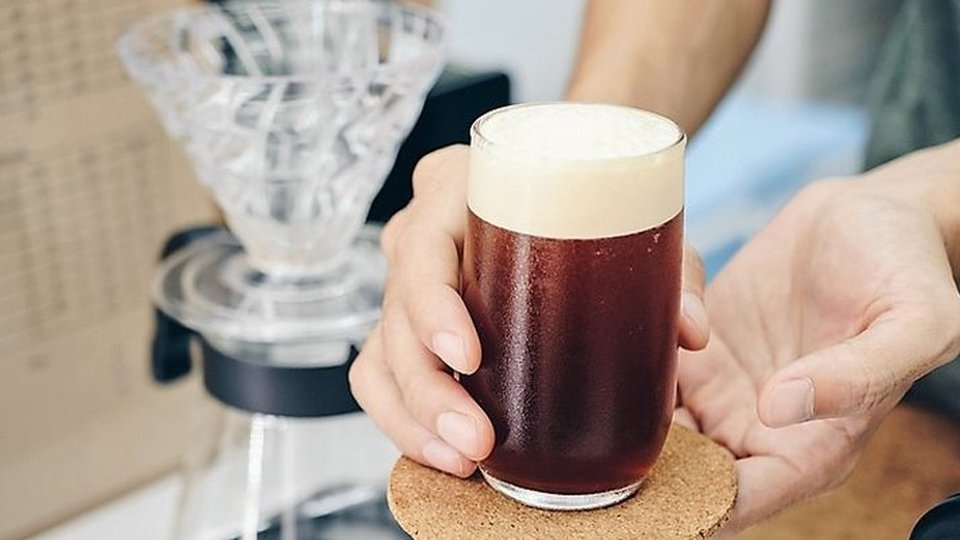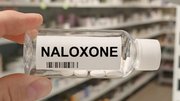Commentary
Cold brew: The strategic imperative for refreshment services, commercial foodservice
The financial benefits of a high-margin product are evident, but the true value lies in the ability of cold brew to encapsulate the evolving coffee culture, foster creativity and engage consumers on a deeper level.

December 3, 2023 by Rick Davis — CEO, Coffee Equipment Pros
As the coffee landscape continues to evolve, so too must the strategies employed by commercial foodservice and refreshment businesses to stay ahead of the curve and stay on top of the trends. One trend that has rapidly gained traction in recent years is the surge in popularity of cold brew coffee.
As the CEO of a coffee equipment provider, I am keenly aware of the transformative potential that cold brew brings to the table for businesses in the foodservice and refreshment industry. In this commentary, we'll look at why adding cold brew to your product line or retail offerings is not just a trend but a strategic move that can significantly boost revenue, help differentiate your brand and cater to the evolving tastes of the modern coffee consumer.
A high-margin choice
First and foremost, cold brew represents a high-margin choice that can substantially impact your bottom line. Cold brew requires minimal ingredients, reducing costs associated with milk, sugar and other additives commonly found in traditional coffee beverages.
Not only is cold brew a money maker, but it can also be a money saver by streamlining the preparation process and potentially reducing labor costs.
Streamlined preparation
The simplicity of the cold brew process allows for efficient batch preparation. Once the initial steeping is complete, the cold brew concentrate can be stored and used as a base for various beverages, reducing the time needed for individual drink preparation.
Reduced labor costs
In terms of labor costs, the streamlined preparation process combined with the potential to batch produce cold brew can lead to more efficient workflows. With less hands-on time required for each cup, your staff can focus on providing excellent customer service and attending to other aspects of your business.
This streamlined production process translates into higher profit margins, making cold brew a lucrative addition to your offerings.
A product of coffee culture, creativity
The cold brew phenomenon is not just a passing fad; it is a product of the ever-expanding coffee culture. Consumers today are not merely seeking a caffeine fix; they crave an experience. Cold brew encapsulates this spirit of exploration and creativity, providing a canvas for concocting both cold and hot beverages.
From cold brew lattes to infused cold brews with flavors like vanilla, lavender or cinnamon, the possibilities are endless. By embracing this trend, foodservice and refreshment businesses can position themselves as purveyors of not just coffee but as architects of unique and memorable experiences for their patrons.
The strategic implications of integrating cold brew into your offerings extend beyond the immediate financial gains. In today's competitive market, customer engagement is paramount.
Cold brew provides an avenue for businesses to connect with consumers on a deeper level, tapping into their desire for variety and personalization. The sheer versatility of cold brew allows for seasonal variations and limited-time offerings, keeping the menu dynamic and enticing for repeat business all year long.
Selecting the best system
Once you decide to add cold brew options to your line-up, the success of your cold brew venture is contingent on the commercial cold brew system you choose. Not all systems are created equal, and investing in the right equipment is crucial for ensuring a consistent and high-quality product.
In the realm of commercial cold brew systems, three predominant methods stand out: gravity drip, immersion and pressurized systems. Each technique offers a unique approach to extracting the rich flavors of cold brew, catering to diverse preferences and operational needs.
Gravity drip systems rely on a controlled process where water drips over coffee grounds, gradually extracting the flavors. Immersion systems involve steeping coffee grounds in cold water for an extended period, allowing for a thorough infusion of flavors. Pressurized systems, on the other hand, expedite the brewing process by using pressure to force water through the coffee grounds.
The gravity drip option is our preferred choice. We believe these systems provide unparalleled advantages, including higher yield, low turbidity, quick brew time, superior flavor extraction and an extended shelf life for the resulting cold brew. No matter what type of commercial cold brew system you choose, you'll want to consider the cold brew system's capacity, ease of use and ability to maintain precise brewing parameters.
Additionally, the durability and reliability of the cold brew system should not be overlooked. The last thing a bustling business needs is downtime due to equipment malfunctions. A dependable system not only safeguards against operational hiccups but also reflects positively on your brand's commitment to quality and customer satisfaction.
Embrace innovation, customer-centric thinking
Incorporating cold brew into your menu is not merely a choice between hot and cold; it is a strategic move that can have far-reaching effects on your business. The financial benefits of a high-margin product are evident, but the true value lies in the ability of cold brew to encapsulate the evolving coffee culture, foster creativity and engage consumers on a deeper level.
Selecting the right commercial cold brew system is pivotal to the success of this venture, with considerations ranging from functionality and reliability to sustainability. As the coffee landscape continues to evolve, those who embrace the cold brew revolution will not only weather the changes but thrive in an industry that rewards innovation and customer-centric thinking.
About Rick Davis
Rick Davis, CEO of Coffee Equipment Pros, is a seasoned professional with over 20 years of experience in the coffee industry, specializing in marketing, sales, installations, relocations, and sourcing solutions. Rick’s memorable 2013 origin trip to Panama, including an exhilarating hike up 5,900 feet to Finca la Mula, a well-known Geisha farm owned by world-renowned coffee expert Willem Boot, stands as a testament to his commitment to the coffee industry.
 ChatGPT
ChatGPT Grok
Grok Perplexity
Perplexity Claude
Claude






